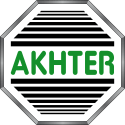Working in the Corporate Sector
Akhter can support the day-to-day needs of a corporate client
Akhter Computers is a leading provider of innovative and reliable technology solutions specifically designed for the corporate sector. We offer an extensive array of products and services that are carefully tailored to meet the unique and diverse needs of businesses of all sizes—whether small startups or large multinational corporations. Our unwavering commitment to excellence, combined with our cutting-edge expertise, guarantees that your organization remains ahead of the curve in today’s rapidly evolving digital landscape. By partnering with us, you gain access to a team dedicated to supporting your operational needs, streamlining your processes, and enhancing overall productivity.
Our Core Strengths
Our problem-solving skills and swift response to client demands are some of the recognized strengths that set Akhter Computers apart. Our dedicated R&D team works tirelessly to develop flexible, innovative solutions, enabling us to respond effectively when specialized IT system requirements arise. We understand that agility and expertise are crucial in maintaining a competitive edge.
Expertise in Microsoft Systems and Beyond
Leveraging our extensive knowledge of Microsoft systems, we deliver a broad spectrum of network solutions-including Virtualisation, Cloud Computing, and Collaborative Working Environments-empowering businesses with secure remote access and unified communications. This ensures seamless collaboration, enhanced productivity, and secure data management across all organizational levels.
Robust Hardware Solutions for Modern Business Needs
In addition to desktop computers, Akhter Computers specializes in providing high-performance server and networking solutions designed to meet the demanding requirements of modern enterprises. Our servers are engineered for high availability, scalability, and security-ideal for hosting critical applications and safeguarding vital data. Complementing this, our extensive range of networking equipment, including switches, routers, and firewalls, guarantees seamless connectivity, robust security, and optimal data flow within your corporate infrastructure.
In the corporate sector, hardware plays a crucial role in facilitating operations, improving productivity, and enabling communication. Here are some key categories of hardware commonly used in corporate environments:
Computers and Workstations:
Desktops, laptops, and workstations are foundational hardware for employees. They vary in specifications to suit different tasks, such as graphic design, software development, or data analysis.
Servers:
Powerful computers that manage network resources, store data, and host applications. Corporations use different types of servers, including file servers, application servers, web servers, and database servers.
Networking Equipment:
Essential for connecting devices within a corporate network. This includes:
Routers: Direct network traffic and connect different networks.
Switches: Facilitate communication between devices on the same network.
Firewalls: Provide security by monitoring and controlling incoming and outgoing network traffic.
Storage Solutions:
Hardware for data storage, including:
Hard Disk Drives (HDDs) and Solid State Drives (SSDs) for local storage needs with options for high performance and capacity.
Network Attached Storage (NAS) devices for centralized data storage accessible to multiple users and systems.
Storage Area Networks (SANs) for high-speed and scalable data storage.
Printers and Scanners:
Essential for producing hard copies of documents and digitizing physical documents. Modern multifunction printers (MFPs) often combine printing, scanning, copying, and faxing capabilities.
Telephones and Communication Devices:
Traditional desk phones, VoIP phones, and communication tools like headsets facilitate internal and external communication.
Video Conferencing Equipment:
Hardware for virtual meetings, including:
Cameras: High-definition cameras for clear video quality.
Microphones: Quality microphones to capture clear audio.
Displays: Large displays or projectors for better visibility during meetings.
Point of Sale (POS) Systems:
Used in retail and service industries to facilitate transactions, including hardware like card readers, cash registers, and barcode scanners.
Workstations for Specific Functions:
Specialized hardware for specific tasks, such as:
Graphic workstations for designers (high-performance GPUs).
Testing and development hardware for software engineers.
Mobile Devices:
Smartphones, tablets, and laptops enhance mobility, allowing employees to work remotely or while on the go.
Security Hardware:
Devices to protect corporate assets, such as:
Surveillance cameras for monitoring premises.
Biometric devices for access control (fingerprint or facial recognition).
Hardware security modules (HSMs) for ensuring secure data processing.
IoT Devices:
Smart devices connected to the Internet that can collect and transmit data to optimize operations, such as smart thermostats, sensors for environmental monitoring, and connected machinery.
Backup Solutions:
Hardware like external drives, tape drives, and cloud-based solutions ensure data redundancy and disaster recovery.
The integration of hardware in the corporate sector facilitates efficiency, enhances communication, and supports the technological infrastructure necessary for modern business operations. Organizations must consider their specific needs when selecting hardware to ensure it aligns with their goals and operational requirements. As technology advances, businesses are also challenged to keep up with trends in hardware to remain competitive and secure.
Partner with us to future-proof your business with reliable, secure, and scalable hardware solutions. Talk to one of our advisors today-helping your organization thrive in a competitive marketplace.
